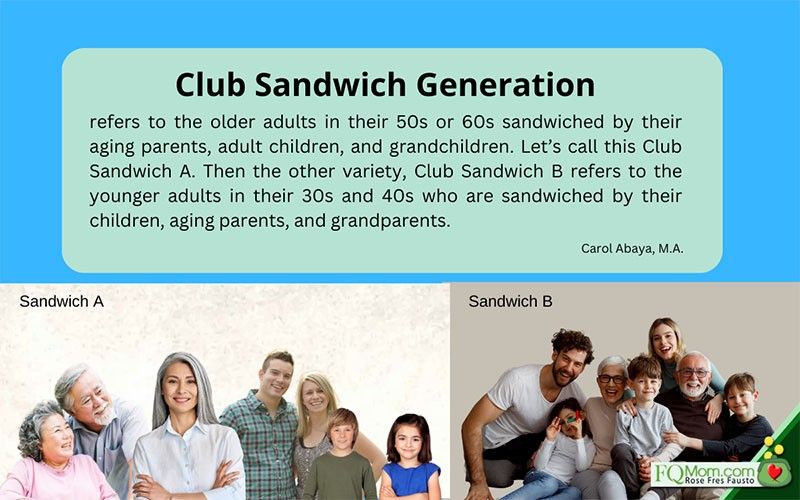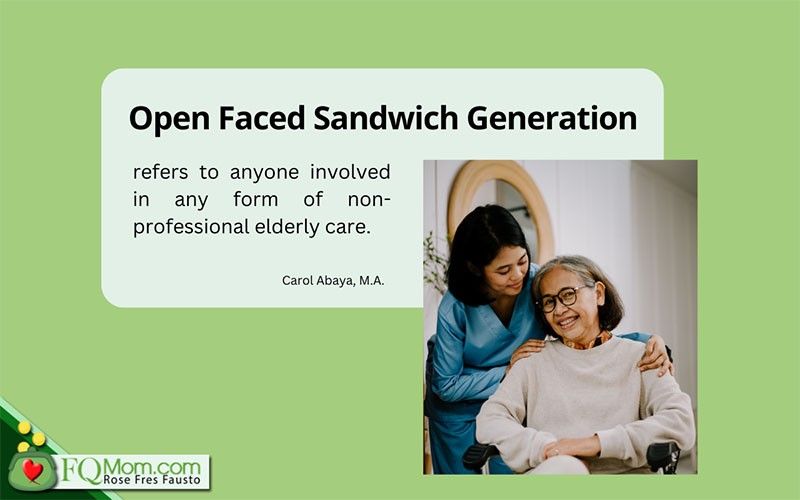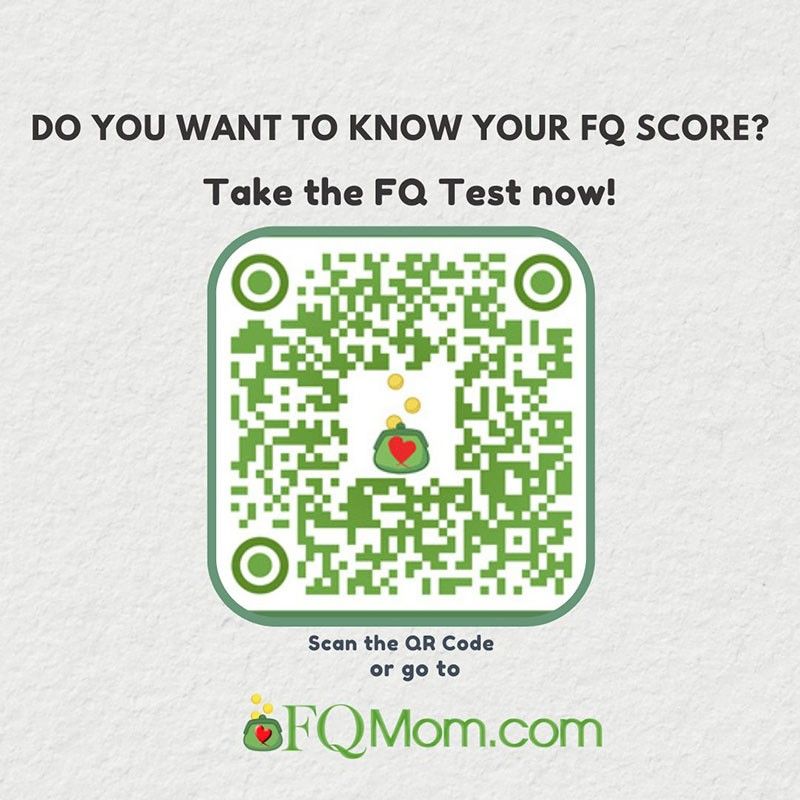Are you caught in the sandwich generation? Or are you among the lucky ones?


What is the sandwich generation?
In 1981, University of Kentucky professor and social worker Dorothy A. Miller coined the term sandwich generation. You belong to this generation if you are an adult taking care of your children and your aging parents. It is called sandwich because you are caught between two generations. That means that you are taking care of three generations – your children’s, your parents’, and your own.
Different varieties of the sandwich generation
Even before the term was coined in the US, Filipinos have been living the phenomenon of sandwich generation. We value close family ties and that usually goes with dependence both financially and emotionally. For this article, we will focus on the financial dependence. Filipino expert on the sandwich generation, Carol Abaya, M.A., further breaks this down into different “sandwich varieties.”
1. Traditional sandwich generation – refers to those sandwiched or caught between their children and their aging parents, both needing care.

2. Club sandwich generation – refers to the older adults in their 50s or 60s sandwiched by their aging parents, adult children and grandchildren. Let’s call this Club Sandwich A. Then the other variety, Club Sandwich B refers to the younger adults in their 30s and 40s who are sandwiched by their children, aging parents, and grandparents.

3. Open faced sandwich generation – refers to anyone involved in any form of non-professional elderly care.

If I may add, it doesn’t even have to be elderly care in the Philippine setting. You don’t even have to have children to be in a similar situation as the three varieties above. We see some taking care of their nephews, nieces, siblings, uncles, aunties, etc. So, I’m proposing the fourth variety…
4. Halo-Halo pandesal generation – refers to anyone involved in any form of non-professional care for other family members and even non-family members.

Where do you belong? What should you do?
So where do you belong? Is it Traditional, Club A, Club B, Open Faced, or Halo-halo Pandesal? No matter what it is, this is the time to really get hold of your finances. Preparing for your own retirement alone is challenging enough. The complications brought about by the squeeze of these different sandwiches double, triple, or quadruple the challenge.
If you are among the lucky few who is not sandwiched in anyway, you may continue reading so you do not end up being a financial burden to anyone when the time comes.
Here are some things you should ponder upon.
1. Figure out what kind of lifestyle you want to have today and in your retirement years.
2. Have some estimates on the cost of these lifestyles.
3. How much should you be saving and investing to achieve those lifestyles?
4. With all of these in mind, how much support can you really give to the other generations you are taking care of? The figures will help you determine what wants you can cut back on for yourself and the other generations you are supporting.
5. Ask for help from other family members. We have the tendency to just let the one perceived to be earning most to take care of everything for the other family members who are not financially capable. This primarily stems from that stigma of talking about money openly. We would hear, “Uy pamilya yan, huwag tayong magbilangan.” If left unchecked, the generous family members may end up financially dependent on others in their retirement years, continuing the vicious cycle of the sandwich generation phenomenon.
6. Check assets that may be better off sold at this point in the life of your aging parents or grandparents. Sometimes, this dream of passing on something as “pamana” (inheritance) may get in the way of living a less stressful life for everyone. (Click Asset-Rich But Illiquid Parents to read more on this.)
7. While you financially support someone like your siblings, nieces, nephews, children, and maybe even your parents, have a clear understanding of the nature of the support. Financial support should be temporary, as it is best for everyone to be financially independent. Be very careful when discussing this, especially with your parents in order to avoid hurting feelings.
8. While you give your financial support, make them observe the three basic laws of money. (Click book or video to know more about the laws.) You should not do a “Pasan ko ang daigdig” (Let me carry the weight of the world) approach when it comes to preparing for a financially healthy life. Involve everyone who affects your financial behavior.
I hope the above will help you make the best of your days with the people you are supporting financially right now – your children, parents, grandparents, siblings, nephews, nieces, and other loved ones. If all of these are discussed and worked out well for everyone’s benefit, you can focus on enjoying each other’s company by nurturing loving relationships, an important ingredient for a fulfilling and meaningful life.
ANNOUNCEMENTS
1. To avoid being stuck in the sandwich generation, take the FQ test together with your family member, click here or scan the QR code.

2. Gift yourself and your loved ones the gift of High FQ, Buy here.




















